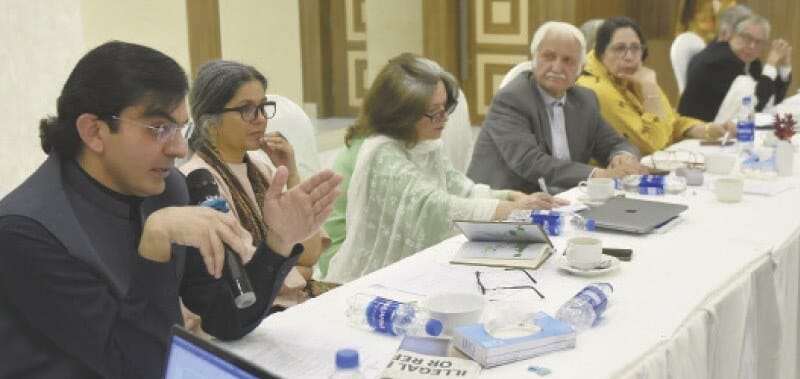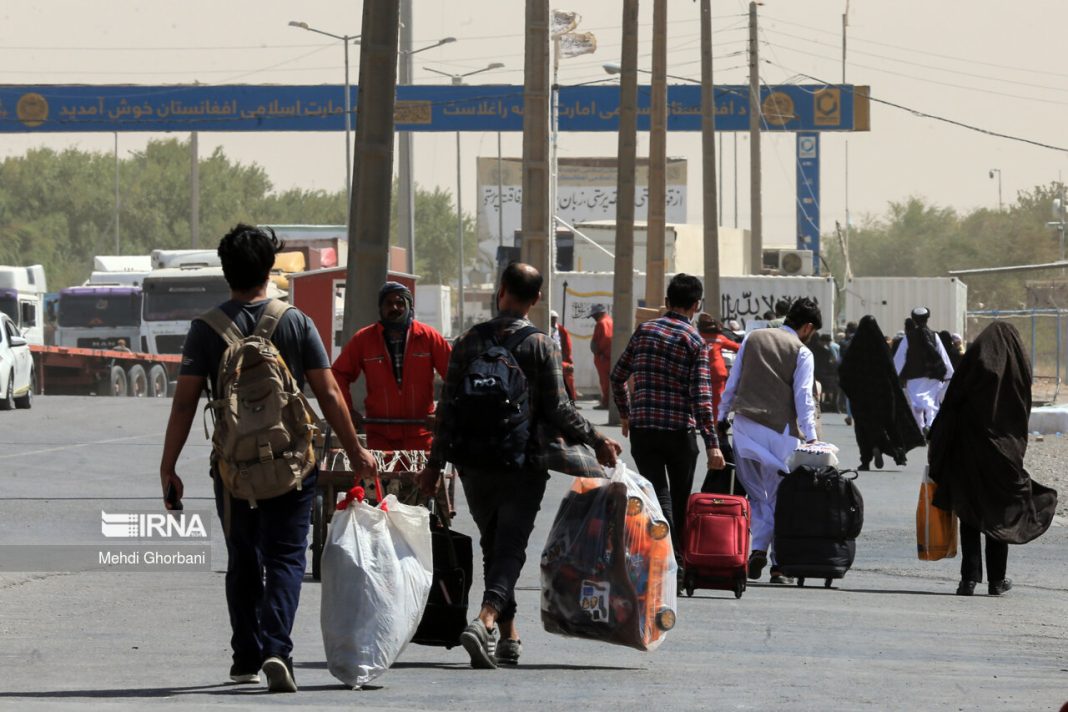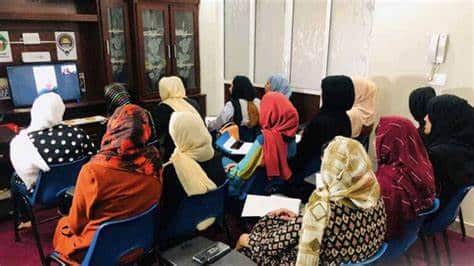
Speakers urge government to withdraw decision to expel ‘illegal’ foreigners
سخنرانان دولت را به لغو تصمیم در مورد اخراج “خارجیهای غیرقانونی” فرا میخوانند
اسلام آباد: سخنرانان در جریان رایزنی در مورد “حقوق پناهندگان افغان” در روز چهارشنبه با ابراز نگرانی از اعلامیه پاکستان برای اخراج حدود 1.1 میلیون خارجی ساکن در این کشور به صورت “غیرقانونی” از دولت خواستند تا فوراً تصمیم خود را برای اخراج خارجیهای بدون مدرک تا 1 نوامبر لغو کند.
در این مشاوره که توسط کمیسیون حقوق بشر پاکستان (HRCP) برگزار شد، سخنرانان گفتند این تصمیم از ابتدا در حوزه وظایف دولت موقت قرار ندارد، علاوه بر این، به منزله بازگرداندن اجباری به وطن است که تحت قوانین بینالمللی شناخته شده نیست.
علاوه بر این، آنها گفتند که این اقدام همواره بر پناهجویان و مهاجرین فقیر و آسیب پذیر افغان از جمله زنان، کودکان، سالمندان، افراد دارای معلولیت و افغان هایی که به دلیل حرفه شان در معرض خطر هستند، تأثیر می گذارد.
دولت پاکستان مهلت 31 اکتبر را برای تمام مهاجران غیرقانونی تعیین کرده است تا کشور را ترک کنند یا با زندان یا اخراج مواجه شوند.
در این سمینار مدافعان حقوق بشر، کارشناسان حقوقی، آژانس های بین المللی و نمایندگان پناهندگان افغان گرد هم آمدند تا در مورد این موضوع بحث کنند و توصیه هایی را برای چگونگی حمایت از حقوق پناهندگان در پاکستان ارائه کنند.
حنا جیلانی، رئیس HRCP گفت، اگر پاکستان نتواند به تنهایی به آن رسیدگی کند، این موضوع باید به مجامع ملی و بین المللی کشیده شود. او گفت که ممکن است به مجمع قضایی نیز استناد شود، زیرا بابر ستار، قاضی دادگاه عالی اسلام آباد قبلاً موضوع پناهندگی را زیر سوال برده بود.
او گفت که “یک راهحل یکسان برای همه” نمی تواند برای همه پناهندگان و پناهجویان بدون در نظر گرفتن نیازهای خاص آنها اعمال شود. او گفت حتی در عدم وجود یک سیاست معین در مورد پناهندگان، پاکستان همچنان به قوانین عرفی بینالمللی پایبند است و افزود که هر چنین سیاستی باید نگرانیهای انسانی را نسبت به نگرانیهای امنیتی مقدم بداند.
سناتور پیشین بابر اعوان گفت فقدان قوانین داخلی در مورد پناهجویان با توجه به تعهدات پاکستان تحت توافق سه جانبه با افغانستان و کمیساریای عالی پناهندگان سازمان ملل متحد (UNHCR) بهانه ای برای عدم حمایت از حقوق آنها نیست.
او ایجاد یک شورای ملی پناهندگان را به عنوان پل ارتباطی بین دولت و پناهندگان توصیه کرد تا آنها بتواند نگرانی های خود را بیان کند. او از تصمیمی که سال ها پیش در کابینه فدرال برای مدیریت پناهندگان گرفته شده بود صحبت کرد. او همچنین گفت که پاکستان تعدادی معاهدات را با کمیساریای عالی پناهندگان سازمان ملل امضا کرده است و باید از آنها پیروی کند.
یکی از اعضای شورای حقوق بشر، سعدیه بخاری، مشاهدات یک هیأت حقیقت یاب اخیر را ارائه کرد که نشان می دهد چندین شهرک افغان در اسلام آباد توسط اداره توسعه پایتخت تخریب شده اند، ظاهراً به عنوان بخشی از یک حرکت ضد تجاوز. با این حال، اکثر ساکنان دارای کارت POR هستند و می گویند که در پی اطلاعیه دولت در مورد خارجی ها مورد آزار و اذیت، ارعاب و اخاذی توسط پلیس قرار گرفته اند.
دکتر صبا گل ختک، محقق حقوق پناهندگان، بر نیاز به داده های دقیق و در دسترس عموم در مورد تعداد پناهندگان و پناهجویان به منظور ارزیابی نیازهای منصفانه تاکید کرد.
شرکت کنندگان موافقت کردند که فقدان مستندات به این معنی است که زمینه بیشتری برای نقض حقوق وجود دارد و اینکه اخراج کل یک جامعه صرفاً برای ملاحظات امنیتی به منزله مجازات دسته جمعی است.
محسن داور نماینده سابق مجلس گفت که کمیته روابط خارجی که وی ریاست آن را برعهده داشت به اتفاق آرا توصیه کرده بود که پاکستان کنوانسیون 1951 پناهندگان را امضا کند.
نمایندگان جامعه پناهندگان افغانستان همچنین گفتند که از نظر انسانی امکان بازگشت چند صد هزار پناهجو به افغانستان در کمتر از یک ماه وجود ندارد، در حالی که برای بسیاری از آنها، پاکستان تنها خانه ای بود که تا به حال می شناختند.
نمایندگان کمیساریای عالی پناهندگان سازمان ملل گفتند که هرگونه بازگرداندن پناهندگان باید داوطلبانه باشد، مطابق با استانداردهای بین المللی عزت و امنیت باشد و بر اساس رضایت آگاهانه برای بازگشت و ادغام مجدد باشد.
منتشر شده در داون، 19 اکتبر 2023.
ISLAMABAD: Expressing concerns over the announcement by Pakistan to expel around 1.1 million foreigners living in the country ‘illegally’, speakers during a consultation on the “Rights of Afghan Refugees” on Wednesday urged the government to immediately withdraw its decision to expel undocumented foreigners by November 1.
Speaking at the consultation, organised by the Human Rights Commission of Pakistan (HRCP), the speakers said the decision did not fall within the mandate of a caretaker government to begin with, apart from which it amounted to forced repatriation, which was not recognised under international laws.
Moreover, they said, the move would invariably affect poor and vulnerable Afghan refugees and asylum seekers, including women, children, the elderly, persons with disabilities and Afghans at risk because of their professions.
The Pakistan government has set October 31 deadline for all the undocumented immigrants to leave the country or face imprisonment or deportation.
The seminar brought together human rights defenders, legal experts, international agencies, and representatives of Afghan refugees to discuss the issue and develop recommendations for how to protect the rights of refugees in Pakistan.
HRCP Chairperson Hina Jilani said the matter would have to be taken to national and international forums, if Pakistan could not address it by itself. She said the judicial forum might also be invoked, as Islamabad High Court’s judge Babar Sattar had already questioned the issue of asylum.
She said that ‘a one-size-fits-all solution’ could not be applied to all refugees and asylum seekers without considering their specific needs. Even in the deliberate absence of a policy on refugees, she said, Pakistan was still bound by international customary law, adding that any such policy must put humanitarian concerns ahead of security concerns.
Former Senator Babar Awan said the absence of domestic laws on refugees was no excuse for failing to protect their rights, given Pakistan’s obligations under its tripartite agreement with Afghanistan and the United Nations High Commissioner for Refugees (UNHCR).
He recommended the institution of a national refugee council as a bridge between the government and refugees to enable the latter to articulate their concerns. He talked about a decision of the federal cabinet taken years ago for the management of the refugees. He also said Pakistan had signed a number of treaties, such as with UNHCR, and should follow them.
An HRCP Council member Sadia Bokhari presented the observations of a recent fact-finding mission, which has found that several Afghan settlements in Islamabad have been demolished by the Capital Development Authorioty, ostensibly as part of an anti-encroachment drive. However, the majority of residents hold POR cards and say they have been subjected to harassment, intimidation, and extortion by the police following the government’s notification on foreigners.
Refugee rights researcher Dr Saba Gul Khattak underscored the need for accurate and publicly available data on the number of refugees and asylum seekers in order to make fair needs assessments.
The participants agreed that the absence of documentation meant there was greater scope for rights violations and that expelling an entire community for solely security-driven considerations amounted to collective punishment.
Former MNA Mohsin Dawar said the foreign relations committee he had chaired had unanimously recommended that Pakistan sign the 1951 Refugees Convention.
The representatives of the Afghan refugee community also said it was not humanly possible for several hundred thousand refugees to return to Afghanistan in under a month when, for so many, Pakistan was the only home they had ever known.
Representatives of UNHCR said any repatriation of refugees must be voluntary, comply with international standards of dignity and safety, and be based on informed consent for return and reintegration.
Published in Dawn, October 19th, 2023
Main Resource Link
- Tags
- Asia



